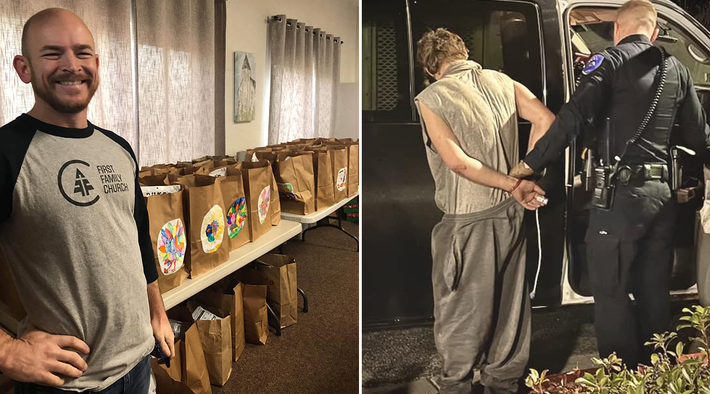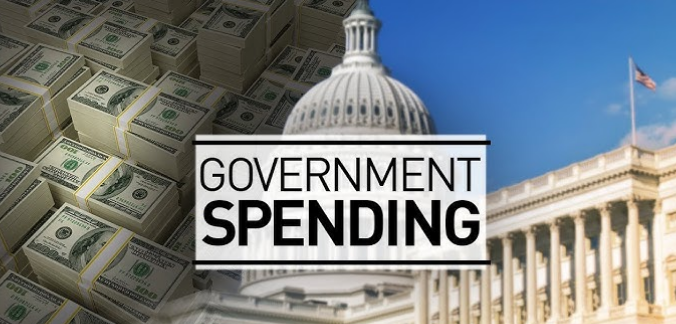Photos: YouTube\Twitter
Wednesday, on the two-year anniversary of the murder of George Floyd, President Biden signed an executive order on police reform that will apply to federal law enforcement officer. Many national organizations say these reforms are positive but do not go far enough to fix the many problems in American policing.

Organizations such as the Lawyers’ Committee for Civil Rights Under Law, the Southern Poverty Law Center, the NAACP and the Drug Policy Alliance have all issued statements on President Biden’s executive order.
In response to the White House’s Executive Order on Police Accountability, Damon Hewitt, the President and Executive Director of the Lawyers’ Committee for Civil Rights Under Law, released the following statement Wednesday:
“Today marks two years since George Floyd was murdered. It’s crucial to recognize that Black communities in this country are still suffering from discrimination, excessive force, and other abuses at the hands of the police. The White House’s Executive Order on policing, a response to the revitalized movement for racial justice that Floyd’s death catalyzed among millions of Americans across the country, is a necessary step to reform federal law enforcement and incentivize reforms at the state and local level. It is also a vital part of law enforcement earning the trust of communities of color.
“The provisions in the Executive Order reflect unprecedented steps to increase accountability and transparency of law enforcement, including the creation of a national misconduct database; a provision to end the transfer and sale of military equipment to local law enforcement; screening to avoid the hiring and retention of officers who promote violence, white supremacy, or other bias; and a requirement for federal law enforcement agencies to adopt the Department of Justice’s updated use of force policy. In combination, these and other changes will help address the scourge of unchecked police violence and alarming militarization of the police, while also helping to shift the broken culture of policing in this country.
“The Executive Order is a fundamental first step, but it cannot be the last one. Of course, executive action by the President cannot directly mandate changes to policies and practices by local and state law enforcement agencies in the same way federal legislation could. As a result, most of the key provisions of the Executive Order, including body-worn cameras and a ban on chokeholds, will apply only to federal law enforcement agencies.
“That is why it’s still imperative that Congress pass national police accountability legislation to address the killings of Black women, men, and children around the country by law enforcement and the mistreatment of people of color by police more generally.
“It is also imperative that state and local governments, which oversee the majority of the nation’s 18,000 police departments across the country, enact their own reforms that increase police accountability and transparency. State and local officials should use this Executive Order as a model for reform in their own communities.
“Even though executive action cannot address all harms, we commend the Biden administration for taking what action it could following the shameful sabotage of federal police reform legislation by anti-community forces last year. The steps taken today represent a floor–not a ceiling–on future reform efforts. The Lawyers’ Committee will continue working alongside President Biden and Congress to secure meaningful accountability for law enforcement at all levels of government.”

The NAACP issued the following statement:
“The NAACP commends efforts by the Biden Administration in this week’s Executive Order on police reform. The timing of this announcement with the anniversary of George Floyd’s murder is a reminder that policing in America is uneven when it intersects with Black America. The Executive Order is a good step forward.
“Policies outlined by the Biden Administration are needed to ensure alignment on use-of-force policies across the country and to tighten restrictions on practices like chokeholds and the use of no-knock warrants that have resulted in the death of Black Americans.
“Although these policies are needed, the NAACP remains focused on ensuring that policing is centered on public safety. To that end, we call upon the U.S. Senate to address core elements that continue needing reform: an end to qualified immunity, resources for implicit bias training, and community-based alternatives that aid in mental health crisis response.
“All too often, Black Americans have been most impacted by the misalignment of policies that create incentives for police misconduct. As midterm elections approach, the NAACP and its two million members will continue to monitor policing within our communities to ensure that federal, state, and local elected officials respond to the public safety needs of Black Americans.”
The following is a statement from the Southern Poverty Law Center’s Chief of Staff and Culture, Lecia Brooks, on President Biden’s executive order which directs all federal agencies to adopt or revise their use-of-force policies. It also creates a national registry of police misconduct; encourages state and local police to impose new restrictions on chokeholds and no-knock warrants; as well as prohibits the transfer of most military equipment to law enforcement agencies.
“President Biden’s Executive Order to reform policing is a step in the right direction. Holding officers accountable for police violence by restricting chokeholds and no-knock warrants are common sense reforms. Yet, deadly incidents and harmful threats to Black and Brown communities continue to happen since Mr. Floyd’s death. We know that training is insufficient to address the major issues in policing. There must be a new approach to public safety. It is our hope that this executive order is a catalyst for legislative and procedural change at the federal, state, and local level.”

Maritza Perez, Director of the Office of National Affairs at the Drug Policy Alliance, released the following statement:
“President Biden’s executive order on police reform fails to fully address the scope of the issue facing our communities and provide the kind of meaningful action that is needed to prevent such tragedies–as what we saw with George Floyd and so many others–from continuing to occur.
“While it limits no-knock entries, it does not outright end the practice of militarized raids, like the one that killed Breonna Taylor, which can be just as deadly and are extremely common in drug enforcement. While it places restrictions on programs that facilitate the transfer of military equipment to state and local law enforcement, it does not altogether put an end to such programs. And while it recognizes the dangers of facial recognition technology–which has been shown to disproportionately harm communities of color– and calls for a study on its impacts, it does not even do anything to stop the practice during the study.
“We are calling on the Biden Administration to act swiftly to strengthen this executive order and work with Congress to pass the Amir Locke End Deadly No-Knock Warrants Act (H.R. 6877) and the Demilitarizing Local Law Enforcement Act of 2021 (H.R. 3227) to abolish the practice of providing surplus military equipment to local law enforcement agencies.
“We look forward to continuing to work with the Administration and Congress to ensure comprehensive reform that will truly protect our communities and ensure dignity and respect for Black, Latinx and Indigenous lives.”
We urge the Biden Administration and Congress to build upon this executive order and work with impacted communities to enact meaningful police reforms, including:
- Strengthening protections against dangerous drug raids, including prohibiting entries without meaningful notice as described here.
- Ending military transfer programs like the Department of Defense’s 1033 and 1122 Programs;
- Implementing a moratorium on facial recognition technology until the National Academy of Sciences publishes its study;
- Supporting non-police crisis-response teams, instead of armed police, to respond to 911 calls involving suspected drug use or intoxication and creating clear policies and guidelines of when police should get involved.












